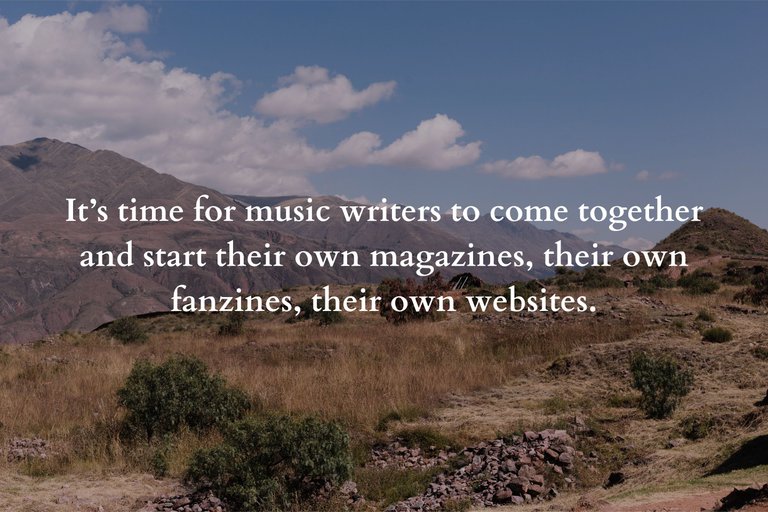
I was watching the 22nd episode of this animated sitcom series, when the question finally struck me. It wouldn't be the first time consuming old content led me to a tangential investigation. In fact, I find myself reviewing content as much as I consume it. The reason might be, that as with eating, the decision of what you consume remains utterly your own. As such, there's no reason to suffer what you don't like in the name of growth. It's not like a bad TV show will raise the iron levels in your body. So I asked.
Who produced this? Apparently, a STARZ company.
Wasn’t STARZ connected to HBO? I asked Melani.
They’re separate companies, apparently.
STARZ came out in ‘94, February 1st (great month). It premiered with two movies: both dramas. I recognize Al Pacino in Scent of a Woman, despite never having seen the film. The other title really has my attention, though.
Here’s why: scanning the Wiki, without going over the plot, I found out this flick was a critical and commercial success. In 1999, an authority on British film named it the 26th best British film of all time. I have a taste for the older, finer things especially if they’ve won awards. Particular tendency I noticed over time.
Between these finding these movies on various platforms, though, I wonder with thoughts and text. Why do these things come down from platforms? The context varies with each situation, sure. But the entire situation puzzles me. Is it always a matter of money?
You didn’t get those samples cleared or you don’t have rights or the royalties agreement expired. It’s ridiculous! And as a consumer, it’s not just a mild inconvenience. I mean, I can’t enjoy Neil Young, or smooth hip-hop from Jim Jones. Even my Japanese city pop stylings from Mai Yamane are off the table.
What’s the matter?

Neil Young Didn't Need Spotify
According to this online article from UK magazine publisher, Far Out, a few reasons led to Neil Young asking for his content to be removed. For one, the matter was personal. The debate about whether on unverified views might be spread about COVID-19 via Joe Rogan's podcast feels irrelevant. I wouldn't ask people who needed critical information to listen to Joe Rogan, as much as I'd check in with Jay Leno or Conan O'Brien for the weather the next morning. It's just chatter.
Ultimately, I view the article's information as evidence that Neil did not need Spotify but took a simple, beneficial step for himself: denounce the streaming platform. All a part of his image as a countercultural icon, the decree to the public to boycott Spotify certainly made him a champion among an already dedicated fanbase.

Jim Jones & Mai Yamane's Music Is Probably Missing for the Same Reason
I found this article, originally posted to Pitchfork, available on Yahoo! Entertainment. I'll return to why that's important later.
Firstly, the problem is fraud. Music journalism is very necessary, to cover abuses and crimes like this. This random investigation on a whim would offer the first look I had at some stories. Take this, for example. A fake Rihanna album came up in March of 2019. It hit No. 67 on the iTunes worldwide album chart before coming down. It was uploaded under the alias, "Fenty Fantasia."
Are you kidding me?
I wish you were. It gets much worse. Peep. Other artists like Young Nudy and Playboy Carti were entangled in a situation when their leaked track actually sampled Mai Yamane's Tasogare but without any rights.
I've heard here and there from people involved in crypto, that the music industry is one realm where decentralization could disrupt, but I didn't know. This disruption is both necessary and feasible. Why? In essence, artists can't upload their work to music platforms directly.
This ultimately creates the need for distributors, "reputable" businesses that platforms like Spotify will engage. However, there exists distributors by which anyone can upload music, with falsified info, like the name "Fenty Fantasia."
From the article, the point Noah Yoo illustrates is clear..
By abusing the limited oversight in the digital supply chain, it’s possible that leakers can make significant amounts of money off music they have zero rights to.
The solution Yoo identifies: a universal metadata database in music. Reading more on its potential, the database would not solve all our problems. Metadata can still be forged.
Yet, as early crypto adopters theorize, a decentralized metadata database might be a step in the right direction to protect the interests of artists, listeners, and labels alike.
Some Questions Lead to More
The animated sitcom series, Dan Vs, boasts creative writing, engaging visual direction and a stellar cast of voice actors. I commend STARZ and the team involved for writing such good work. Without that poke from curiosity, I would not find more movies of acclaim to see for myself. But I would have had to scour platforms left and right to determine where I might view it. In terms of shows of old, I appreciate that I can find sites that host large libraries of programming. What I don't appreciate goes on a long list, but it includes the following: bad actors forcing fake uploads onto platforms and platforms lacking adequate measures in place.
Still, I have an answer. It comes from Chris Richards' perspective. He's from the Washington Post. He shares that writers will have to carry the torch.
It feels too easy to be prescriptive and rah-rah here, but do we have any other choice? It’s time for music writers to come together and start their own magazines, their own fanzines, their own websites.
I couldn't agree more. Now more than ever, for the things that are tasteful and important to us, we must use our voices to make our points. Vote with your dollar, my professor used to say. What do you vote for with your dollar? I noticed @tarazkp makes similar remarks. Are we voting for platforms that can remove things at will? I try and I write. What about you?

We are slaves to convenience, even if that self-imposed slavery leads us into even tighter chains.
Do you think people can shake off this “kink” for that bondage? I reckon there are a few stoics who refuse to be enticed with shortcuts. You come to mind, for example.
I’m glad that you noticed the disappearing of content - there is an effort underway to actively remove things from the internet. It’s pretty insidious because it’s a bit like the book burning of a hundred years ago where they are removing information so that people can only access the information they choose.
Yes. I hadn’t appreciated the significance an archivist makes. In fact, I still might not. I can picture how the cost of ownership especially for digital and physical goods will continue to inflate over time, as businesses look to control even our media and attention. What we can do is continue to save things, record things and detail history via personal witness.
I don’t understand, did you mean to write slavery?